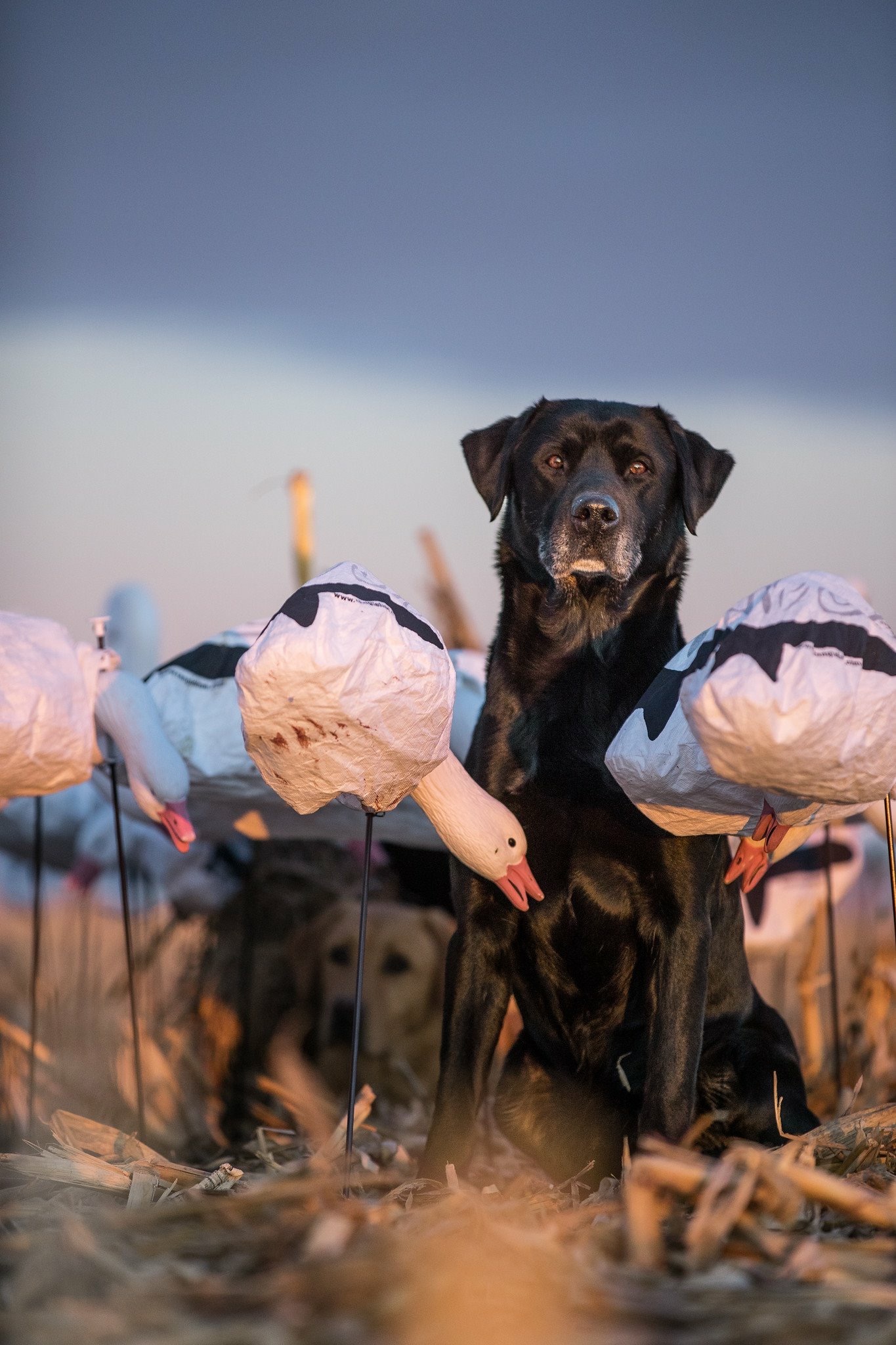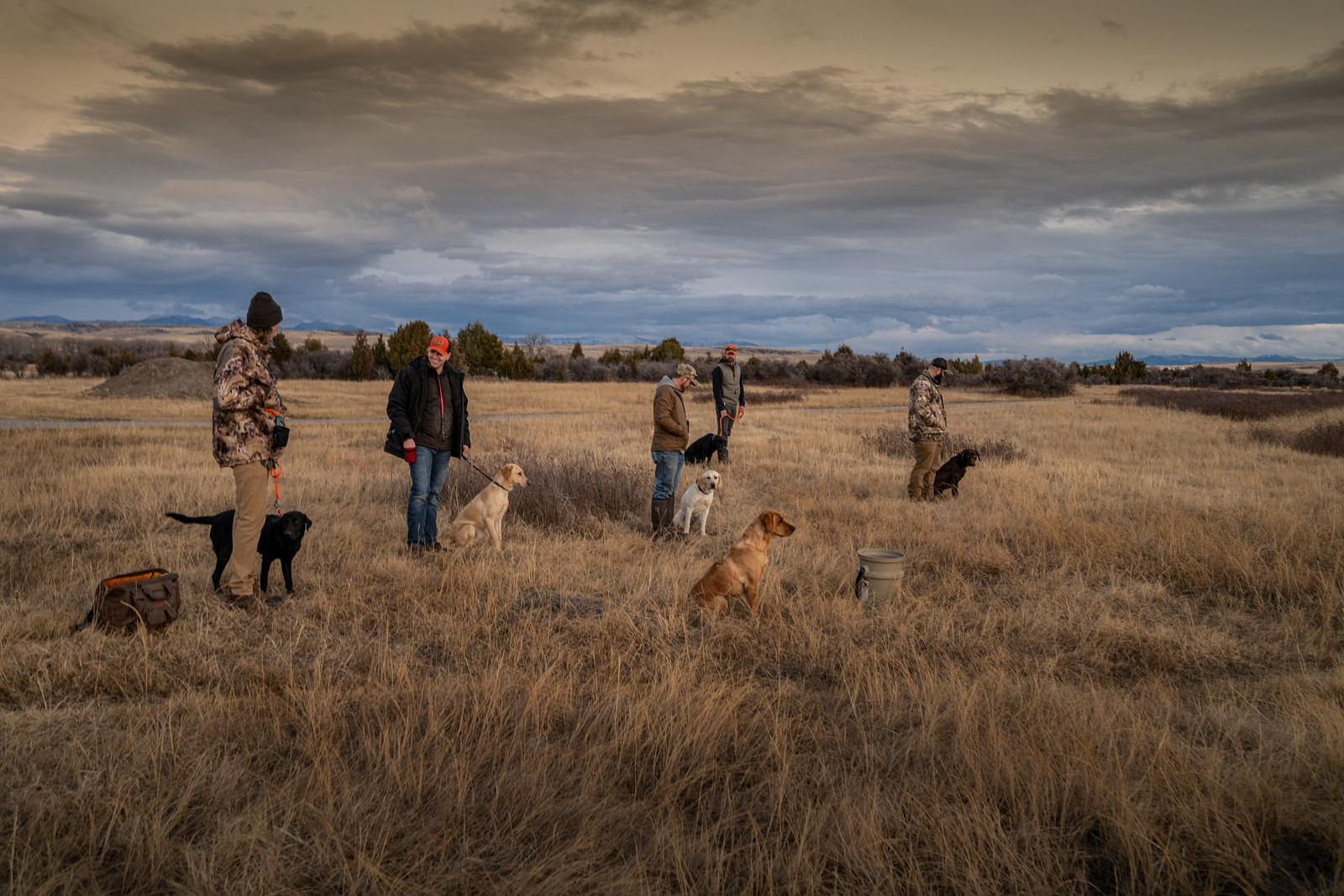Hunting with Multiple Retrievers: Tips and Challenges

Hunting With Multiple Retrievers
Hunting with multiple retrievers can be an exhilarating experience, but it also comes with unique challenges. Training one dog for duck hunting is already a significant task, but preparing two or more dogs to work together in the field requires a whole new level of training and preparation. Even if your duck hunting dog is well-trained, there are several factors to consider before bringing multiple dogs into the blind.
Should You Hunt with an Untrained Dog?
Before diving into the specifics, it's essential to assess the training level of the other dog that will be hunting alongside yours.
If the other dog is untrained, it might be best to leave your dog in the truck or at home. An unsteady or poorly trained dog can tempt your steady hunting dog to pick up bad habits, such as breaking, making noise, or failing to deliver to hand. The risk of undoing months or even years of training may not be worth the potential rewards of hunting with both dogs.
The Impact of Hunting on Retriever Training
It's important to remember that hunting often challenges your retriever’s training progress. During a hunt, we tend to let things slide that we wouldn't typically ignore during training sessions. This relaxed attitude can lead to a decline in basic obedience, and hunting with multiple dogs can exacerbate these issues.
Is Your Dog Ready to Hunt with Another Dog?
Before heading out into the field with another dog, ask yourself: Is my gun dog ready? Absolute steadiness is the most crucial skill when hunting with multiple dogs. Both dogs need to stay in their place until released, ensuring they don't both go after the same bird. Additionally, your dog should be well-socialized and comfortable around other dogs to prevent jealousy or aggression.
Preparing for the Hunt
When hunting with multiple dogs, their energy levels can feed off one another, often leading to heightened excitement. This excitement, combined with the presence of live birds, can create chaos if not managed properly.
To maintain control:
- Communicate with the other dog handler. Decide who will send their dog for each bird, especially if one dog is more proficient at blind retrieves.
- Set Up Properly: Ensure each dog has a clear view of the birds and is positioned to mark effectively. If you're hunting in a larger group, make sure each dog has enough space to avoid confusion.
- Create a Plan: Establish a clear system with the other handler for how you will manage the dogs during the hunt. Open communication is vital to avoid conflicts and ensure a smooth hunt.
Common Issues to Anticipate
One of the worst scenarios when hunting multiple dogs is one dog stealing a bird from another's mouth. This can cause anxiety and confusion, as the dog might perceive this action as pressure. Whining is another issue that can arise, often fueled by jealousy between the dogs. Ensuring your dog is calm and quiet under the excitement of a hunt is crucial.
How to Avoid These Issues
The best way to prepare for hunting with multiple dogs is through group training sessions. At Cornerstone Gundog Academy, we emphasize the importance of training your dog alongside others in controlled settings. Our Complete Retriever includes a specific module for Group Training, focusing on steady, quiet behavior.
- Reward Steadiness: Only reward your dog with a retrieve in group settings if they are steady and quiet. This positive reinforcement teaches patience and control.
- Run Drills: Practice sending multiple dogs for retrieves at the same time. Start with wide angles and gradually narrow the distance between them. This helps teach each dog not to interfere with the other's retrieve.
When Things Go Wrong
Despite all your preparation, unexpected situations can still arise in the field. If things start to go awry, it’s often best to remove your dog from the situation. Back your dog up on his stand or, if necessary, return him to the kennel at the vehicles. It’s better to preserve your dog’s training and avoid creating bad habits than to push through a challenging hunt.
Communicate with Guides
If you’re on a guided hunt, communicate your expectations for your dog beforehand. Guide dogs are typically well-trained, but they may not be accustomed to working alongside another dog. The last thing you want is for your dog to pick up bad habits from another dog during a single hunt.
By following these tips and preparing thoroughly, you can help ensure that hunting with multiple retrievers is a positive and successful experience. For more detailed information on how to prepare your retriever for the field, click here.








